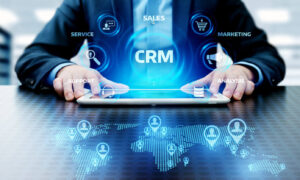Wholesale suppliers are the unsung heroes of the business world, acting as the vital link between manufacturers and retailers. They play a pivotal role in ensuring that products reach their intended destinations in a timely and efficient manner.
This article delves deep into the world of wholesale suppliers, highlighting their importance in the business ecosystem and offering insights on how to select the best ones.
Wholesale suppliers are the backbone of the supply chain, bridging the gap between producers and consumers. Their role is not just limited to buying and selling; they are instrumental in connecting various businesses, ensuring that products are available when and where they’re needed.
This blog post aims to shed light on the intricacies of wholesale suppliers and provide businesses with the knowledge to select the best ones for their needs.
Understanding Wholesale Suppliers
At its core, a wholesale supplier is an entity that purchases products in bulk from manufacturers and sells them to retailers or other businesses. Their significance is felt across industries, from fashion to electronics, ensuring that products are available in the market.
Key functions of wholesale suppliers include sourcing products from manufacturers, warehousing them, and distributing them to various retailers. They are the reason why a retailer doesn’t have to directly deal with multiple manufacturers. By facilitating bulk purchases, they allow businesses to benefit from economies of scale, ensuring products are available at competitive prices.
Benefits of Establishing Strong Supplier Connections
Building robust relationships with wholesale vendors such as GlobalSources can be a game-changer for businesses. Such relationships lead to cost savings, as bulk purchases often come with discounts. Moreover, a reliable inventory means businesses can meet customer demands promptly, leading to increased customer satisfaction.
A classic example of a successful partnership is between Apple and its suppliers. Apple’s strong ties with its component suppliers ensure that it gets priority, leading to timely product launches.

Source: kanyaanindita.medium.com
Factors to Consider When Selecting Wholesale Suppliers
When it comes to selecting a wholesale supplier, several factors come into play:
- Product quality ─ The products’ quality is paramount. Inferior quality can tarnish a business’s reputation.
- Pricing ─ Competitive pricing can make or break a deal. It’s essential to ensure that the cost aligns with the product’s quality.
- Delivery reliability ─ Timely delivery is crucial. Delays can disrupt business operations and lead to lost sales.
- Customer service ─ A supplier’s responsiveness to queries and issues can significantly impact the business relationship.
Researching Potential Suppliers
Before finalizing a supplier, thorough research is an absolute necessity. The digital age has made it easier to access a plethora of information about potential suppliers. Online reviews, for instance, can offer firsthand accounts of other businesses’ experiences with the supplier.
Industry forums act as platforms where professionals discuss and share their insights, while referrals from trusted business partners can be golden.
Additionally, attending trade shows and industry events offers a unique opportunity not just to meet suppliers in person, but also to observe their interactions with other businesses, gauge their professionalism, and get a firsthand look at their product offerings.
Assessing Supplier Reputation and Reliability
In the business world, a supplier’s reputation often speaks volumes about their reliability and trustworthiness. It’s not just about what the supplier claims, but what others say about them. By checking references, businesses can hear directly from previous clients about their experiences.
Delving into case studies provides a comprehensive view of the supplier’s past projects, their successes, and challenges. Moreover, analyzing past client experiences, especially any challenges faced and how they were addressed, can give potential clients a clearer picture of the supplier’s problem-solving capabilities and commitment to customer satisfaction.

Source: buymerchant.com
Evaluating Product Quality and Consistency
The essence of a successful business lies in its ability to consistently meet or exceed customer expectations. This is heavily reliant on product quality. It’s not enough to assess a product once and assume its quality will remain consistent.
Regular quality checks are crucial. Sampling different batches of products ensures that quality remains consistent over time. Factory visits, on the other hand, provide a behind-the-scenes look into the production process, allowing businesses to verify if best practices are being followed and if the necessary quality controls are in place.
Negotiating Terms and Pricing
Negotiation is indeed an art, one that requires skill, patience, and strategy. In the realm of business, especially with suppliers, the goal is to arrive at terms that are mutually beneficial. This doesn’t just mean getting the lowest price but ensuring value for money.
Strategies for effective negotiation include discussing bulk purchase discounts, which can significantly reduce costs. Flexible payment terms can ease cash flow for businesses, while clear delivery schedules ensure that businesses can plan their inventory effectively. A win-win negotiation strengthens the business relationship and sets the stage for long-term collaboration.
Supply Chain Compatibility and Flexibility
The modern market is anything but static. With rapid technological advancements and ever-changing consumer preferences, businesses need suppliers who aren’t just reactive but proactive. A supplier’s ability to quickly adapt to changes, be it a sudden surge in demand or a new market trend, is invaluable.
This flexibility ensures that businesses can respond effectively to market dynamics without disruptions. Suppliers should also be compatible with the business’s supply chain processes, ensuring seamless integration and efficient operations.

Source: interlakemecalux.com
Communication and Customer Support
The foundation of any successful business relationship is built on clear, open, and transparent communication. It’s not just about responding to queries but anticipating potential challenges and addressing them proactively.
Suppliers should be easily reachable, willing to provide regular updates, and quick to resolve any issues that arise. Regular meetings foster a deeper understanding between the business and the supplier, ensuring that both are aligned in their goals and strategies. Effective communication reduces misunderstandings, fosters trust, and ensures smoother day-to-day operations.
Contracts and Agreements
While trust is a cornerstone of any business relationship, formal contracts and agreements provide the necessary legal protection. These documents serve as a reference point for both parties, clearly outlining the expectations, responsibilities, and terms of the partnership.
Key elements to include are terms of service, which detail the scope of the supplier’s services, payment terms that outline pricing and payment schedules, and delivery schedules that ensure timely product delivery. These contracts should be reviewed periodically to ensure they remain relevant and reflect the evolving nature of the business relationship.
Summary
In conclusion, wholesale suppliers are more than just middlemen. They are vital cogs in the business machinery, ensuring products flow seamlessly from manufacturers to consumers. By understanding their role and selecting the best ones, businesses can ensure growth and success in the competitive market landscape.























